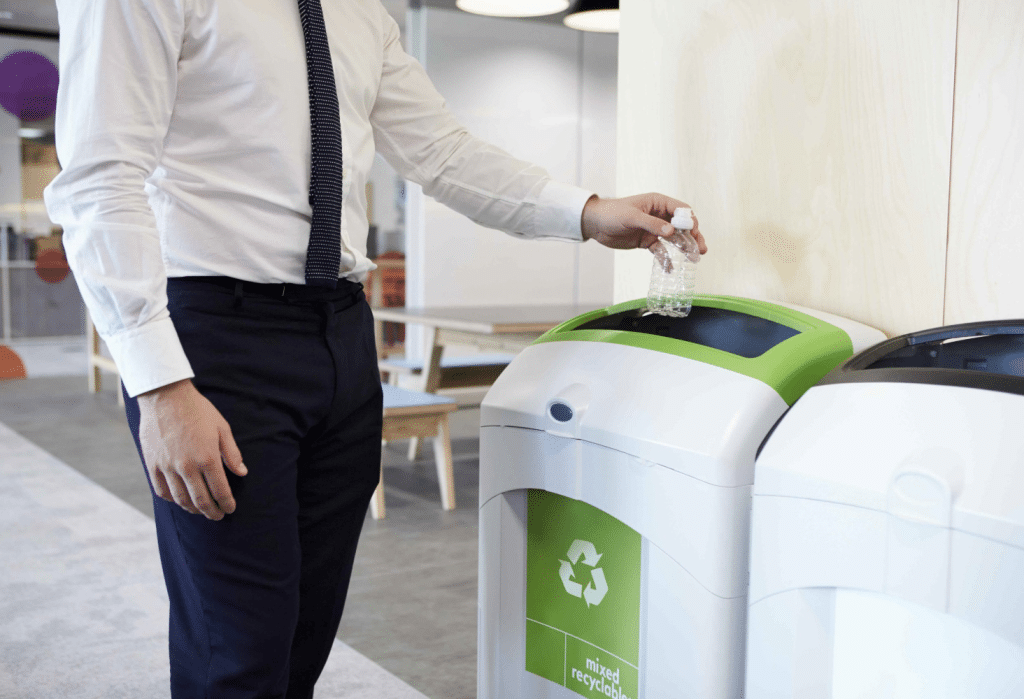In today’s environmentally conscious world, businesses are under increasing pressure to adopt sustainable practices. Going green is no longer just a trend; it’s necessary for companies aiming to thrive in a competitive market.
Effective waste management services are one of the most impactful ways to achieve sustainability. Here’s how waste management can help your business go green, reduce costs, and improve its reputation.
Understanding Waste Management
Waste management involves collecting, transporting, processing, recycling, and disposing waste materials. Effective waste management strategies are designed to reduce the amount of waste generated, promote recycling and reuse, and minimize the environmental impact of waste disposal.
Benefits of Waste Management Services
● Reducing Environmental Impact
Waste management services play a crucial role in reducing businesses’ environmental footprint. Companies can divert significant amounts of waste from landfills by implementing recycling programs. Recycling helps conserve natural resources, reduce greenhouse gas emissions, and decrease pollution. Waste management companies can provide tailored recycling solutions for various types of waste, including paper, plastics, metals, and organic materials.
● Compliance with Regulations
Environmental regulations are becoming stricter worldwide. Non-compliance can result in hefty fines and damage to a company’s reputation. Waste management services ensure that your business adheres to local, state, and federal regulations regarding waste disposal. They keep up with the latest regulatory changes, ensuring that your waste is handled, compliant and environmentally friendly.
● Cost Savings
Effective waste management can lead to significant cost savings for businesses. Recycling and reusing materials can reduce the need to purchase new raw materials. Additionally, many waste management companies offer waste audits to identify areas where waste can be minimized, leading to reduced disposal costs. By optimizing waste processes, businesses can achieve better efficiency and lower operational costs.
● Enhancing Corporate Reputation
Consumers and stakeholders are increasingly valuing businesses that demonstrate a commitment to sustainability. Implementing waste management practices showcases your company’s dedication to environmental responsibility. This can enhance your corporate reputation, attract eco-conscious customers, and improve relationships with investors and other stakeholders.
● Creating a Healthier Workplace
Proper waste management contributes to a cleaner and safer workplace. Reducing waste and promoting recycling can minimize clutter and reduce the risk of accidents. Additionally, if not properly managed, some waste materials can pose health risks to employees. Waste management services ensure that hazardous waste is handled and disposed of safely, protecting employees and the environment.
Implementing Effective Waste Management Practices
● Conduct a Waste Audit
The first step in improving waste management is understanding the types and quantities of waste your business generates. A waste audit involves analyzing your waste streams to identify areas for improvement. This can be done with a waste management service provider, who can offer expert insights and recommendations.
● Develop a Waste Reduction Plan
Develop a comprehensive waste reduction plan based on the waste audit’s findings. This plan should outline specific goals and strategies for reducing, reusing, and recycling waste. Engage employees by providing training and encouraging their participation in waste reduction initiatives.
● Partner with a Reputable Waste Management Service
Choosing the right waste management service provider is crucial for the success of your sustainability efforts. Look for a company with a proven track record, comprehensive services, and a commitment to environmental responsibility. A good waste management partner will offer customized solutions, regular reporting, and ongoing support to help your business achieve its green goals.
● Promote Recycling and Reuse
Implement recycling programs for paper, cardboard, plastics, glass, and metals. Set up designated recycling bins throughout the workplace and educate employees on separating recyclable materials. Additionally, explore opportunities for reusing items within your business operations. For example, repurposing office furniture or using packaging materials multiple times can significantly reduce waste.
● Monitor and Evaluate Progress
Monitor the effectiveness of your waste management practices regularly and make adjustments as needed. Track key metrics such as waste generation, recycling rates, and cost savings. Share progress with employees and stakeholders to maintain engagement and demonstrate the impact of your sustainability efforts.
Conclusion
Effective waste management services are vital to any business’s sustainability strategy. By reducing environmental impact, ensuring regulatory compliance, achieving cost savings, enhancing corporate reputation, and creating a healthier workplace, waste management can help your business go green. Embrace these practices today to contribute to a more sustainable future and position your company as a leader in environmental responsibility.
